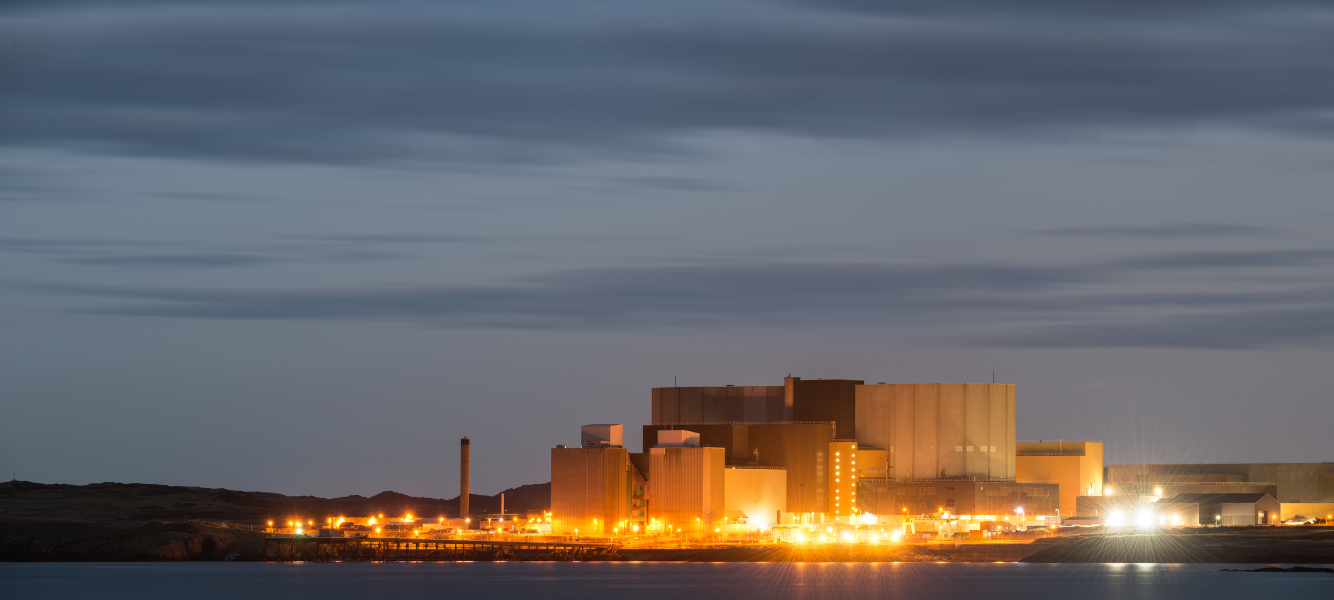Contract hiring is gaining momentum across the UK as employers turn to flexible staffing models to manage workload, risk and economic uncertainty.
The latest data from the Association of Professional Staffing Companies (APSCo) shows contract vacancies and placements climbing steadily, whilst permanent recruitment is stabilising after a period of caution. For hiring managers in power generation, renewable energy, nuclear and technical engineering.
Understanding these trends is essential when planning your workforce strategy for the months ahead.
What the Latest Hiring Data Tells Us
APSCo’s October 2025 Hiring Trends report, produced in partnership with Bullhorn, reveals that contract vacancies rose by 2% between September and October, with an 8% year-on-year increase.
Contract placements followed a similar pattern, up 1% month-on-month and 13% compared to October 2024.
This consistent upward trajectory reflects growing demand for contingent workers who can step into projects quickly and deliver results without long-term commitment.
The permanent market presents a more cautious picture, but there are signs of recovery.
Permanent vacancies held steady in October after a 26% surge between August and September.
Although year-on-year figures show a 16% decline, permanent placements rose by 2% month-on-month and 5% year-on-year, suggesting that recent vacancy growth is beginning to convert into actual hires.
Samantha Hurley, Managing Director at APSCo UK, noted that whilst permanent hiring is still finding its footing, the growth in placements is a promising sign that confidence is gradually returning.
Why Contract Recruitment Is Gaining Ground
The shift towards contract hiring is driven by several factors that resonate strongly in technical sectors.
Economic uncertainty remains a key concern for businesses.
Hiring a contractor allows organisations to scale their workforce up or down in response to project pipelines, regulatory changes or market conditions, without the financial and operational commitment of a permanent hire.
Contractors also provide access to specialist skills that may not be needed on a full-time basis. In sectors such as power generation, renewable energy and nuclear, project-based work is the norm.
Commissioning engineers, control and instrumentation specialists, outage planners and design engineers are often required for defined periods, making contract roles a natural fit.
Bringing in contractors for these assignments means businesses can draw on deep expertise exactly when it is needed, then release that resource once the project is complete.
Risk management plays a part too.
Permanent hires carry long-term cost, from salary and benefits to redundancy risk if market conditions change.
Contractors offer a buffer, allowing businesses to maintain momentum and meet deadlines whilst keeping their core permanent headcount lean and manageable.
What This Means for Energy and Technical Sectors
Astute works with owners and operators, EPCs, OEMs, developers and asset managers across power generation, renewables, nuclear and technical engineering.
The trends seen in APSCo’s data align closely with what we are seeing in these sectors.
Contract demand is particularly strong in areas such as commissioning, maintenance outages, project delivery and specialist engineering disciplines where timelines are fixed and skills requirements are highly specific.
Daniel Don, Head of Sales at Astute, commented: “We are seeing strong and sustained demand for contract talent across our sectors, particularly in project-critical roles where clients need people who can hit the ground running.
“Employers are looking for flexibility and speed, and they recognise that specialist recruiters with established contractor networks can deliver both.
“At the same time, we are also seeing permanent hiring activity pick up in areas such as operations, leadership and core engineering functions, which suggests that businesses are starting to balance short-term agility with longer-term capability building.”
Renewable energy projects, for example, often require contractors during construction and commissioning phases, with permanent hires brought in once the asset is operational and generating revenue.
In nuclear, the combination of planned outages, decommissioning programmes and new build activity creates ongoing demand for contract specialists in health physics, mechanical engineering, electrical engineering and project controls.
Power generation facilities rely on contractors to cover planned and unplanned outages, ensuring that generation capacity is maintained without permanently inflating the payroll.
Contract vs Permanent: When to Use Each Approach
Knowing when to hire on a contract basis versus a permanent basis is not always straightforward.
Both approaches have a role to play, and many businesses use a blend of the two to meet their operational and strategic needs. Here is a practical breakdown:
When contract hiring makes sense:
-
Project delivery with a clear start and end date, such as commissioning, construction or decommissioning work.
-
Access to specialist or niche skills not required on a permanent basis, such as design engineers, commissioning managers or technical safety specialists.
-
Covering planned events such as outages, turnarounds or shutdowns where additional resource is needed temporarily.
-
Responding to short-term demand spikes or filling gaps whilst permanent recruitment processes run.
-
Managing budget and headcount constraints by keeping the permanent payroll stable whilst still delivering projects and meeting deadlines.
When permanent hiring makes sense:
-
Business-as-usual operations where continuity, knowledge retention and long-term accountability matter.
-
Leadership and management roles where strategic direction, team development and cultural fit are priorities.
-
Core technical functions where ongoing capability, training and succession planning are needed.
-
Building long-term capability in areas such as asset management, operations, engineering and HSQE.
-
Creating stability and engagement within teams, particularly in roles that benefit from deep organisational knowledge.
Understanding your immediate and longer-term workforce requirements, combined with realistic budget and risk planning, will help determine the right mix for your business.
How a Specialist Recruiter Supports Flexible Hiring
Specialist recruitment partners such as Astute bring sector knowledge, established networks and speed to the contract hiring process.
Contractors in technical sectors are often in high demand, working on projects across the UK and internationally, which means they need to be approached with the right messaging, at the right time, through trusted channels.
Astute maintains ongoing relationships with contractors across power generation, renewables, nuclear and engineering, which means access to talent that may not be actively searching or visible on job boards.
This network, combined with an understanding of technical disciplines, project requirements and sector-specific compliance, allows us to deliver shortlists quickly and accurately.
For businesses managing large-scale contract deployment, such as during commissioning phases or major projects, managed recruitment solutions can reduce administrative burden, ensure compliance with IR35 and employment regulations, and provide consistent quality across multiple hires.
Whether you need one specialist contractor or a full project team, a specialist recruiter can tailor the approach to your timeline, budget and technical requirements.
Frequently Asked Questions
Why is contract hiring increasing in the UK?
Contract hiring is increasing because businesses need flexibility during economic uncertainty. Contractors allow companies to scale quickly for projects, access specialist skills and manage costs without long-term commitments.
What are the benefits of contract workers in technical sectors?
Contract workers bring specialist expertise for projects such as commissioning, outages or design work. They provide agility, reduce permanent headcount risk and allow businesses to respond quickly to changing demand.
How do contract and permanent recruitment trends differ in 2025?
Contract vacancies and placements are growing steadily, up 8% and 13% year-on-year respectively. Permanent recruitment is more cautious but stabilising, with placements up 5% year-on-year as confidence gradually returns.
When should businesses hire contractors versus permanent staff?
Hire contractors for project delivery, specialist skills, peak demand or short-term coverage. Hire permanent staff for business-as-usual operations, leadership roles, long-term capability building and core team stability.
How can specialist recruiters support contract hiring?
Specialist recruiters maintain established contractor networks, understand sector-specific skills, deliver fast shortlists, manage compliance including IR35, and offer managed solutions for large-scale contract deployment.
Need Contract or Permanent Recruitment Support?
If you are planning a project, managing an outage or building your operations team in power generation, renewable energy, nuclear or technical engineering, Astute can help.
Our consultants understand the skills, timelines and compliance requirements that matter in these sectors, and we have access to established networks of contract and permanent talent across the UK.
Speak to Astute today to discuss your recruitment needs.

















